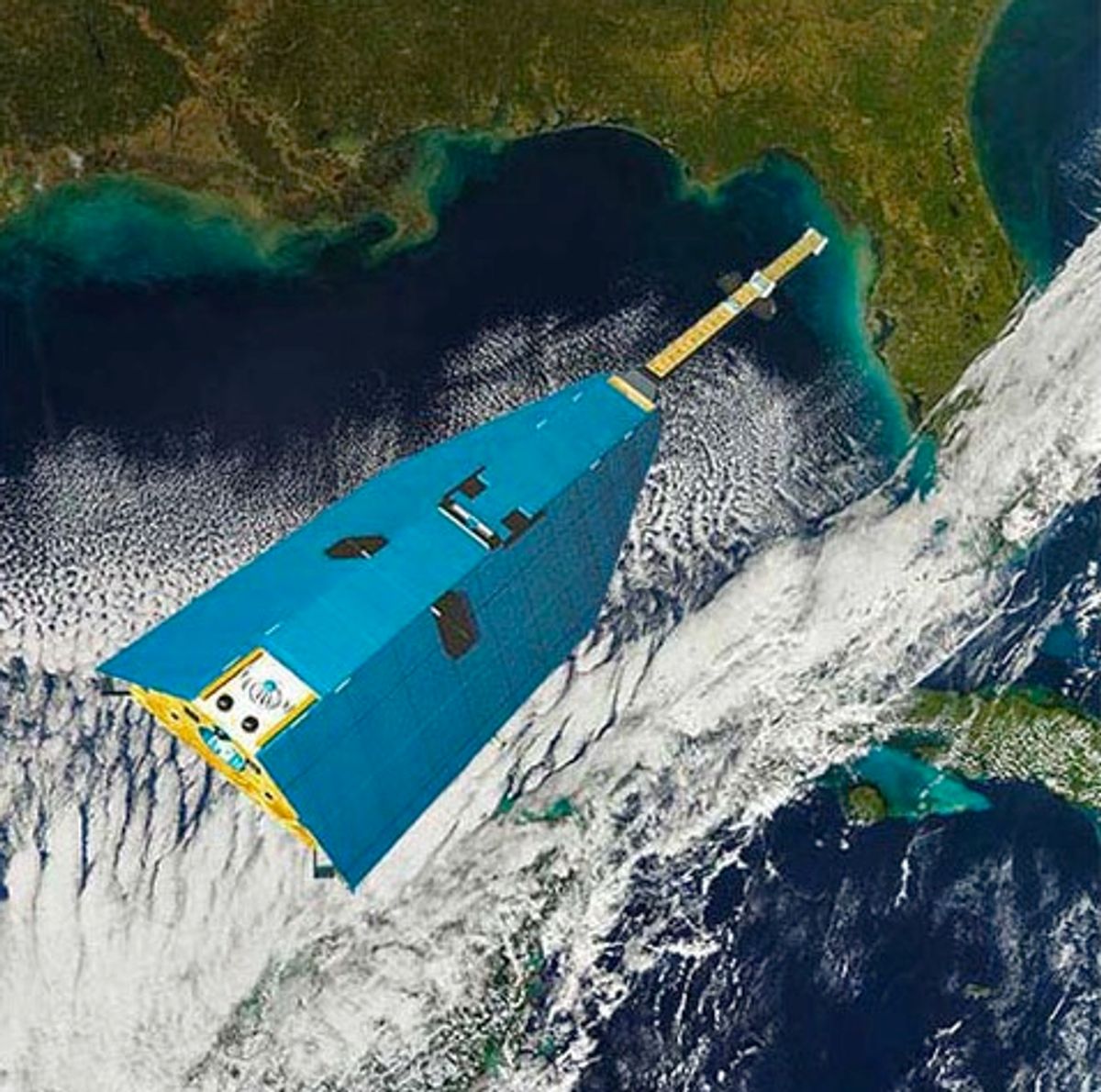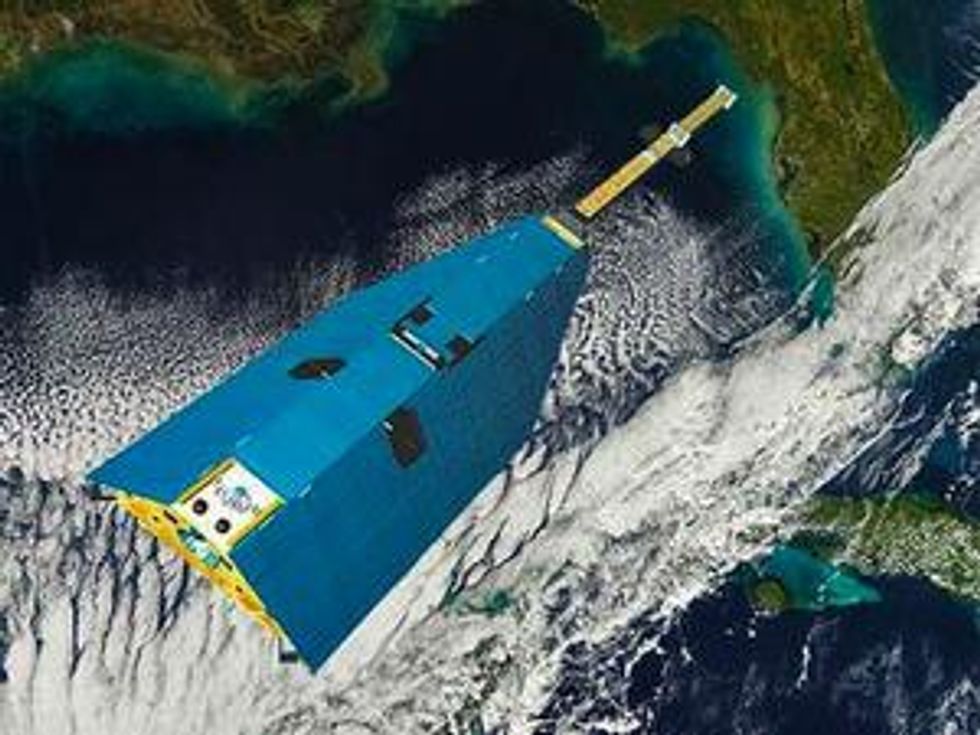Last Monday, MIT Technology Review’s arXiv Blog reports, Jian-Wei Pan and a team from the University of Science and Technology of China, in Shanghai, revealed the results of an experiment in which they successfully sent single photons on a round trip to an orbiting satellite, then detected those same photons back on Earth. The scheme proves that a satellite can beam single photons back to our planet even while it's in orbit, a necessity for quantum communications.
Basically, Pan and his cohorts pointed a couple of telescopes at a targeted satellite, which was covered with reflectors that could bounce a laser beam back to wherever it came from on Earth. One telescope was set up to shoot pulses of light at the satellite, while the other looked for evidence of the reflection. Each beam of light started off with 1 billion photons, and the pulse was repeated millions of times a second. On average, for every pulse of light, just one photon made the return trip back home. They reported detecting these homeward-bound photons at a rate of about 600 per second. "These results are sufficient to set up an unconditionally secure QKD link between satellite and earth, technically,” the team wrote in their paper, which is posted on ArXiv.
But the strangest detail of the announcement had to do with the satellite the group chose in the first place. They claim to have used CHAMP, a German satellite that was deorbited in 2010—meaning the team has purposely elected not to publicize the outcome of the experiment for at least three years. But keeping the news under wraps might make perfect sense, given the group's imminent goal—revealed in the last few details of their paper—to launch the first Chinese quantum science experiment into space. The spacecraft, called the Chinese Quantum Science Satellite, will launch by 2016 if all goes according to plan.




